Text
Why Epic Literature Matters
Let me introduce you to one of my muses and I’ve been holding a torch for her for quite a long time. She is a daughter of Mnemosyne and Zeus, and her name is Calliope. In ancient Greece she was known as the muse of Epic poetry, one of the seven sisters who embodied the different forms of creative inspiration. I wrote a poem to them which is at the beginning of my Kyberpoetica album and this is mainly because almost all classical literature starts with a form of invocation or supplication to the muses for them to bestow inspiration upon the poet as they commence their work. It should be mentioned however that Mnemosyne was not the wife of Zeus so this was an extramarital affair, one of many, which caused religious commentators of the time to feel repulsed by the iniquitous behaviour of the Gods, but there we go.
It is a fairly common preconception that Epic literature refers to the length, when in fact it is not size that matters (as Zeus may have said to Mnemosyne). Epic literature is mostly about a certain theme, and that is overcoming adversity. So anything that deals with this theme could be said to belong in the Epic category whether it consists of numerous volumes or even a single paragraph. It could also be said to have another label which is Heroic literature and this refers to the fact that the main protagonist is usually cast in a heroic role which involves them facing challenges with which they have to struggle but they eventually succeed in the end. Epic literature, which can include both poetry and prose, is about character, it is about how a person deals with an event which requires them to dig deep and reveals something about their true nature. In cases where there is more than one person involved the roles in which they are portrayed may again shed light on their character in response to the circumstances, which may be judged as morally good or as morally evil. In the case of much Classical Epic literature however, it is down to the will of the Gods.
So why is any of this even remotely relevant to today? I would say it is because we are now facing enormous challenges and the Epic literature of the future may well be written about our present circumstances. Time will tell however who will end up being portrayed and how they will be portrayed or even if there will be anyone to tell the tale at all such is our existential jeopardy.
My interest in this stems from my fascination with the Epic stories which I grew up reading about. Greek myth was an early love but also I came to be enamoured with Arthurian legend and a gift from a family friend who was an Irish folklorist introduced me to the Ulster cycle and its main protagonist,Cú Chulainn. It was many, many years later after having come to Scotland to study and eventually settle that I would look further into the stories of the great hound of Ulster and the later hero Fionn mac Cumhaill, whom I have a connection with through my middle name Finley, which is a very bad version of the Gaelic name Fionnlagh. The stories of these heroes are of course in the Epic mould, in the Classical sense, but they were preserved almost unscathed through the highly religious Middle Ages in which Biblical stories competed heavily as moral yardsticks of character. Through those many centuries the bards kept the stories alive via a form of bardic education which had a structured and critical awareness of important techniques of poetic composition and mainly consisted of direct oral transmission. They were patronised by the wealthy nobility of the Gaelic world to whom the poets composed pangyrics heaping copious praise upon their benefactors. Society changed quite dramatically however and economics turned the tide against the old aristocracy and brought many modernisations which we really recognise as the beginnings of our current contemporary culture. I’m not saying that all the changes are bad by any means. The view of women as basically property in those days is thankfully mostly eradicated. My own ancestor married in the hope of clearing massive debts by cashing in the bonds which his wife owned and which it was her “wifely duty” to provide him with.
What I’m really sad about is the devaluing of the Epic and Heroic stories that were so long preserved. Other versions of Epics have of course taken their place of which we will all be familiar, with fiction like Game of Thrones or the Star Wars film franchise or even Harry Potter, all of which contain within them the themes of the Epic. Even with these we are in danger of losing the heart that is at the core of the Epic to the banal and twee commercialisation of what made them once powerful: the reflection and identification within ourselves of being able to overcome overwhelming odds.
The world we live in today wants everything to happen according to the odds so the house always wins, not just in the context of gambling but also in the context of society where number-crunching statistical data allows massive businesses like Facebook to sell advertising that is specifically tailored to be seen by the right audiences. By using the same statistical techniques insurance companies make huge amounts of money on the probability that your lifestyle will lead to certain illnesses, accidents or death and their investments go on schemes that will exploit more resources that will generate more profits and so on in a never-ending loop. But where does character, where does meaning come into this? It doesn’t. These things only appear in the context of the Epic where character and virtue and non-material qualities that you can’t acquire by wealth are extolled.
We are losing ourselves and we need to find ourselves again. The conditions which prevail in the world are what prompt us to act in ways that can either be in accordance with what we hold to be our true values or not. But the choice is ours. This is why in a key moment in the great story of the Mahabharata, which is the Epic literature of India, before the battle of Kurukshetra, Krishna and Arjuna have a discussion in which Krishna basically asks Arjuna how he will respond to the circumstances he finds himself. Arjuna’s character hinges upon this and he asks for guidance which Krishna is happy to provide and this forms the Bhagavad Gita or Song of the Lord. The challenges may be external or internal but the hero will overcome the challenges no matter what, even when all seems lost. And this is how the Epic is born, not because the outcome is guaranteed but because the challenge is accepted (as Barny from How I Met Your Mother would say).
Our times are equally fraught and perhaps some are wondering whether the challenge is too great, but only time will tell. The message I have, and this is why I bear a torch for Calliope, is that there were those who went before us who faced death and didn’t shrink from it. There were people, perhaps our own direct ancestors, about whom songs and bàrdachd were composed because they were worthy of it. They were before us but they are also part of us so let us not forget them or let their stories be trivialised. Let us remember the daughters of Mnemosyne, especially Calliope.
6 notes
·
View notes
Text
A Watcher on Salisbury Crags
In the glint of that gold-circleted eye,
Like laser-licht, the rocks fall,
Cleaved away over centuries, millenia,
Where the sparrowhawk has come to nest.
Brood after brood she made while watching Holyrood
And hungered after the pigeon’s flesh.
Doocots now replaced by railway bridges
A short flight beyond the Abbey ruins
And the ancient tower where Rizzio’s steps were stayed
By a thirst for blood, not of hooked beak but of blade.
The Queen was then heard to shriek in shock and tears,
Her own body bearing a bold boy unrevealed.
The speireag looks in her power and knows
That a tragedy has befallen, even though unseen.
Silently observing, from age to age.
Power undiminished. A people established.
Children of men and children of the air,
Proximal though impersonal,
Barely acknowledging each others existence.
Perched on high or airborne, the hawk is one with sky,
Body well-formed, muscular, agile, lethal,
Plenipotentiary, sinuous, pluviatile le cumhachd gu leòr.
For since the day that man first walked the Earth
The hawk-watcher observed with searing-sight
The tribes of men grow in fecundity
And grow too in folly and arrogance.
None of the deeds of man escaped the aureate eye
Nor now the vision of youth nor of Mothers
Nor precious daughters, our future.
For in the generation arising the excellence of perception
Will be renewed as our old, tired eyes grow dim,
Taking heart from Hawk or Crow of inscrutable intelligence
And the atmospheric knowledge of their birthright,
Custodians of the great wild winds encircling the world.
We may speak of climate or environment
But they know her as boundless home,
One of the elements along with Earth and Water
Regulated by Rìgh nan Dùl.
0 notes
Text
Some transient thoughts, passing through the minds of men, when catching sight of the New Moon
For my Grandfathers, Leroy Örnulf Carlson and William Finley McNaughton
“Sgeul ri athiris air àm o aois.
I. Great Ancestors of the Asante,
To you I give thanks.
Thank you for this our great victory,
Over those people, our enemies,
Whom we have captured.
I, Prince of the Asante, heir
To the Kingdom, with the power
That will be vested in me by the
Divine Golden Stool,
I see your image in the Heavens
In this New Moon, with points upturned.
The white men who come on their ships
Willing to trade with us, I have seen
Their diversity, speaking different languages
And having different manners, they
Argue among themselves.
Some wear short robes of patterned cloth
Like the Kente we weave, but all those who
Wear the red-coat revel in drunkenness.
Their leader has just enough respect from them
To command but mostly because he turns
A blind eye to the worst of their excesses.
The captive women they use as they wish
And many make the journey across the sea
Already nearing childbirth.
They pay us well enough even for these wretches
In muskets, powder and ammunition
So we can continue to expand our Kingdom.
II. Man, dat Moon up der is beautiful,
An’ de millions of stars.
I got lucky to be here, not like dem
Poor African Negroes, jus’ come over,
I can’t see dat many of dem make it,
A whole bunch sick, same as evah.
Leas’ I wuz born here, and my
Ma and Pa taught me good enough
To keep me going, even aftah they dead.
And my mastah, he kinda took a liking
To my big sistah, so dat’s why I’m here.
Got my fine livery clothes and my powdered wig,
You could say I’m almos’ family.
Not dat any of dem fancy white folk
Know it, and they wouldn’t say nuthin’
If they did.
But the Good Lord know it,
He knows it all.
Dat’s what Rev’rend Kilbride says,
A fine upstandin’ Scotch Presbyterian.
He says that one day, and with the
Help of God and Christ, they’ll come
A time jus’ like when Moses took the
Israelites to the Promised Land
And all men will be free from
Their bondage.
Well, I hope to God dat’s true,
But I also heard dat in England
The law says dat there can’t be no slaves,
So I is going to work hard
For one of these fancy white gentlemen,
I is going to get over the sea
So I can’t be no slave no more.
I can read an’ write English, but I’m gonna
Learn more, so I can be some use to dem.
III. These night are getting colder,
Especially when the sky is clear,
Like it is tonight.
I heard that the Laird of Glen Lyon
Is back from Jamaica.
I hope he will be able to get us
Compensation for the cattle we lost
Some few weeks past when the glen was
Swept.
Alas, it’s too late for poor Morag Nic Callum,
Left alone as she was because her brothers
Had departed, to join the ranks of King
George at Fort William, the cateran took
Not only her possessions but her honour as well.
She already had much trouble with the
Kirk Session, accusations of witchcraft,
Someone’s milk cow dries up and
They look for a scapegoat, usually innocent.
She was found hanging from the beam of
Her house, it will be burned to drive away
Evil spirits and then, in the way of the
Old Religion, her body will have to be
Buried outside the cladh.
Poor Morag, sometimes I almost wish I had
Joined her brothers, Fionnlagh and Donnchadh
Instead of being left here where justice is scarce.
Now the Laird has returned to take possession of
His lands, as his brother has gone on the way of truth,
We can only live in hope that things will improve.
He is an intelligent man and has the Beurla
As well as the Gaelic and was well regarded
As physician to the great men of Jamaica,
But still the shadow of Glen Coe
Hangs over his name.
And so we never get peace from the
Mac Donalds, and Glen Lyon is no longer
A heroes’ stronghold as it was in
The days of Fingal, not much left but
The old men and their cows, and since
A few nights past not even a calf remains.
My own sons have gone to join
The rebels in the hope that the Stewarts
May be restored to their rightful place.
News comes from far off that the son of
Seumas will soon come with his army
To reclaim the throne of Alba,
So we may be free from the tyranny of
George and his red-coated soldiers.
Ah, my sons, I hope wherever you are
You are safe and well and gazing on this
New Moon as I do.
1 note
·
View note
Audio
The Riddle Song
Here is a song I wrote many years ago however I thought I would share it as the theme is quite similar to the essay I just wrote on identity. I hope you enjoy it!
0 notes
Text
What is Identity?
How do you identify others? How do you identify yourself? Is it by appearance? Undoubtedly this is an important means of identification otherwise we would not have to include up-to-date photographs in important documents such as passports. Is your identity defined by familial or social relations? You are so-and-so’s son, daughter, mother, father, spouse or you belong to a particular church or denomination or are a citizen of a particular country. Or is perhaps your identity tied to particular interests you have in music, sport, entertainment or by sexual preference? Which of these definitions of identity is the most valuable and important and which can be disregarded and why are they even necessary?
In the Yoga Sutras of Patanjali five klesha or causes of suffering in this world are defined. I quite like the Sanskrit word klesha as it seems very onomatopoeic like the English word “clash”. The first of these is avidya, ignorance, which is clearly a great cause of suffering and is pretty self-explanatory although I will mention it again later. The second one which is very relevant to what I’ve been discussing is asmita, which in the version of the Yoga Sutras I have by Swami Vishnudevananda is translated as “egoism” or “I-ness”. Interestingly this is very close to the Gaelic expression “Is mise” which is used before giving your name and means “I am”. Sanskrit and Gaelic are quite closely related and share many similarities which are also common to most European languages. However the point I’m making is that whenever you use the term “I am” you are basically defining your own identity. “I am Drew McNaughton”, “I am a writer”, “I am an American”, etc., etc. Of course other people can do it to you as well: “He is my son”; “You are white”; etc. All of these instances come under the category of asmita and can cause problems.
The next two klesha to be defined are raga and dvesha which in the translation I have mean likes and dislikes and also attraction and aversion respectively. You would think that only the latter of these would be a problem but let’s look at them from a different angle to see why they are both included. In chemistry there are two key physical properties that can be attributed to chemicals: hydrophilia (water loving) and hydrophobia (water hating). These two extremes can be demonstrated in the fact that oil and water do not mix. Water is a polar substance and a characteristic of these is that they are hydrophilic, whereas oil is a non-polar substance and hydrophobic, hence they cannot be dissolved in one another and remain separate. Certain substances however can be both hydrophilic and hydrophobic and some of these make up the outer membrane of our cells and thus life as we know it depends on them. Why am I digressing into chemistry? Well the two terms philia and phobia are the key terms I want to focus on and these I think make a good analogy for raga and dvesha. For example, if you are really interested or even passionate about music, you are an audiophile or if you really like things to do with France, you are a Francophile, but note that again I’m using the term “you are” which again identifies you in a particular way. Some individuals or groups take the opposite stance and their identity can be defined by the objects of their hatred. This is a well known and unfortunately growing phenomenon. So we have islamophobia, homophobia, xenophobia and so on. As I said before it is clear that these identities are sources of suffering, usually because the people who hold these views inflict some kind of injury, psychological or physical, on the subjects of their hatred. Both the philic and phobic inclinations can be seen then as problematic and this is why I think Stoicism is so similar to Yoga philosophy. There were probably Stoics in ancient times who were aware of Yoga and vice versa due to transmission of philosophies across large geographical distances. Travel, even back then, was difficult but not impossible. Both schools also held that unbridled hedonism didn’t lead to the best results and dealings with society at large should be conducted compassionately.
The last of the klesha to be defined is a rather important one as well. Abhinivesha translates as “fear of death”. I should say at this point that Patanjali in his thorough manner in the subsequent sutras gives definitions for each of the klesha in order to clarify his statements. This is the classic rhetorical device for the sutra form. And his definition of abhinivesha is remarkably succinct as he says that “Fear of death is the continuous desire to live which is rooted even in the minds of the wise.” It is essentially our instinct for survival. But what is it that we are trying to preserve? Ourselves? But who are we ourselves? Ach cò a tha sinn fhéin? And we come back to the original question of what is identity? At our death we merely are losing this sense of identity which we are so strongly identified with. It is such a strong identification that it even exists in the minds of the wisest beings who have ever walked on this Earth, who dwell here now and who will ever dwell here in the future. But these body tissues that are made of flesh and bone, of the very cells that were mentioned earlier and consist of nothing more than a collection of polar, non-polar and hybrid molecules and even more basic elements and sub-atomic particles will disintegrate and re-coalesce into other forms both living and inanimate for vast stretches of time well beyond our limited human lifespan. It is perhaps because of the ignorance (avidya) of this and the wondrous workings of Nature and the Universe that avidya can be considered the root of all the other klesha and the greatest cause of suffering of them all.
However on a final note, because I don’t really think I have managed to answer the question I first set out to answer, I just want to mention that in Gaelic the term for “self-identity” is féin-aithne. I think this term was coined relatively recently as it doesn’t have an entry in Dwelly’s dictionary and this perhaps reflects the modern fascination with the ability to make a conscious decision to identify yourself in some way for reasons that may be bound up in identity politics and relationships of power. Language itself is a potent symbol of identity and the language and even accent you use can greatly define your identity. Returning to the Gaelic word aithne which formed part of the compound word for self-identity, it has an interesting usage and one which I have to admit I struggled with understanding when I first started learning the language. It is worth remarking that it seems to echo the English word “identity” and perhaps comes from the same historic root. Its use when I first came across it was as a form of knowledge or acknowledgement particularly in relation to people with whom you have an acquaintance. The closely related word aithneachd (both are feminine nouns by the way) also means “knowledge” but also “recognition”. Does this once again refer back to a person’s appearance or is it more than that? One way or the other the specialised use of the word indicates that identity, for all its complexity, is deeply rooted in human, and perhaps even non-human, experience.
0 notes
Photo
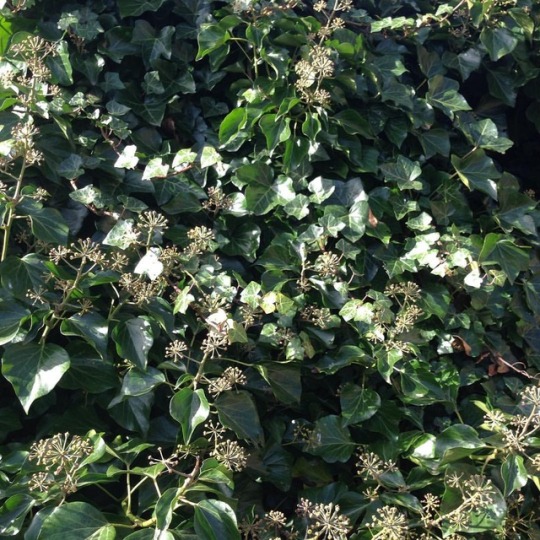
Ivy NT 313 726 . . . #MyTreeEdinburgh #OutdoorAdventureGame #Botany https://www.instagram.com/drew.mcnaughton/p/Bvb41kWgD8-/?utm_source=ig_tumblr_share&igshid=1urh300q54svw
0 notes
Photo

Blackthorn Flowering currant Butterbur NT 318 727 . . . #MyTreeEdinburgh #OutdoorAdventureGame #Botany https://www.instagram.com/drew.mcnaughton/p/Bvb4jt4APAX/?utm_source=ig_tumblr_share&igshid=1ayz6jf39urlw
0 notes
Photo

Rubus ideus. NT 319 728 . . . #MyTreeEdinburgh #OutdoorAdventureGame #Botany https://www.instagram.com/drew.mcnaughton/p/Bvb4DyYgqrw/?utm_source=ig_tumblr_share&igshid=1gwl9qp4yz65e
0 notes
Photo
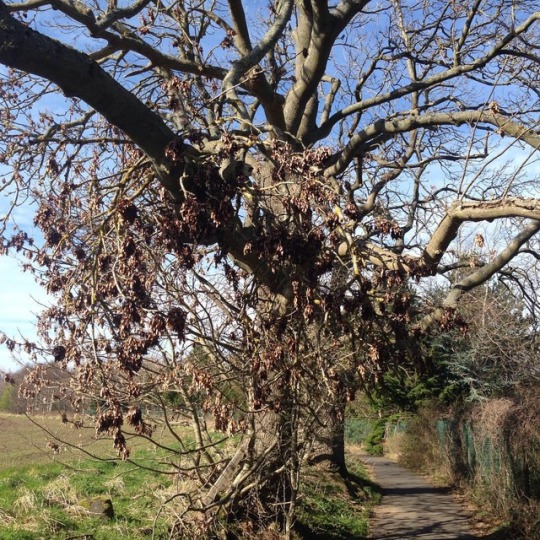
Fraxinus excelsior. NT 322 726 . . . #MyTreeEdinburgh #OutdoorAdventureGame #Botany https://www.instagram.com/drew.mcnaughton/p/Bvb3tFqgmFT/?utm_source=ig_tumblr_share&igshid=1mlmz57g5dd9g
0 notes
Photo

Narcissus. NT 326 730 . . . #MyTreeEdinburgh #OutdoorAdventureGame #Botany https://www.instagram.com/drew.mcnaughton/p/Bvb3cEDAuUB/?utm_source=ig_tumblr_share&igshid=vah0ltrqx9q8
0 notes
Photo
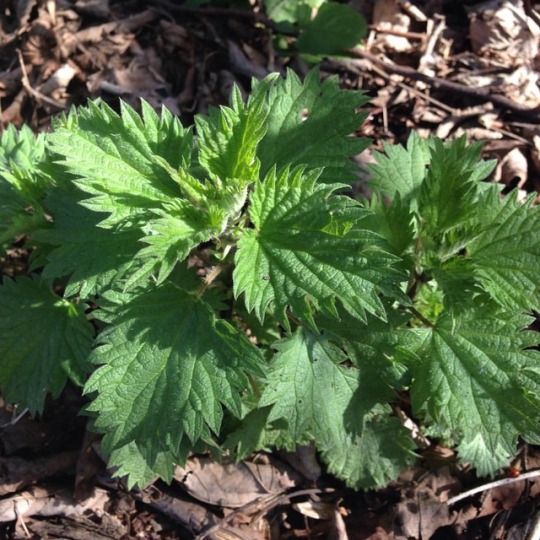
Went on a massive walk this morning as it was such a lovely day and got a load of pics and grid references for my game. Along the John Muir Way from Musselburgh there were loads. Urtica dioieca Sambucus nigra Lesser celandine NT 327 730 . . . #MyTreeEdinburgh #OutdoorAdventureGame #Botany #JohnMuirWayScotland https://www.instagram.com/drew.mcnaughton/p/Bvb3GzUgHuP/?utm_source=ig_tumblr_share&igshid=ikyp1r5eioat
0 notes
Photo

Galanthus nivalis 55° 49.247' N / -03° 15.200' W Glad I got this one for my compendium before they disappear for another year. . . . #MyTreeGame #MyTreeEdinburgh #OutdoorAdventureGame #Botany https://www.instagram.com/drew.mcnaughton/p/BvIHEscAFcY/?utm_source=ig_tumblr_share&igshid=1f3noy7bk07cl
0 notes
Photo
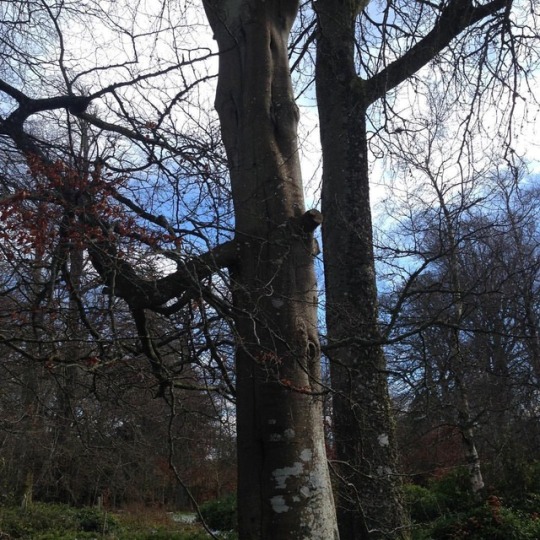
Fagus sylvatica 55° 49.483' N / -03° 15.848' W . . . #MyTreeGame #MyTreeEdinburgh #OutdoorAdventureGame #Botany https://www.instagram.com/drew.mcnaughton/p/BvIFP0kgsyg/?utm_source=ig_tumblr_share&igshid=10j96u12ocy5b
0 notes
Photo

Betula pendula 55° 49.214' N / -03° 15.238' W Sometimes the act of taking pictures for this game produces some nice shots. Your pictures are what makes your compendium unique. Make the most of them. . . . #MyTreeGame #MyTreeEdinburgh #OutdoorAdventureGame #Botany https://www.instagram.com/drew.mcnaughton/p/BvIDpTxAQRe/?utm_source=ig_tumblr_share&igshid=3hclk477z579
0 notes
Photo

Ilex aquifolium 55° 49.190' N / -03° 15.312' W With this Holly I gain another 5 points (I'm on 50 now) and go up another level from Beginner Botanist to Intermediate Botanist. As you go up levels you also unlock more info about your compendium. You don't have to submit a plant name if you don't want to though, just the location along with the picture. As long as the plant can be identified from the picture you get a point and it will unlock that plant in you're compendium as well as the info you can access according to your score. When you start you can only access the Scientific name but as you get more points you can get more info from your compendium which I will produce. That's why I'm playing it myself. . . . #MyTreeGame #MyTreeEdinburgh #OutdoorAdventureGame #Botany https://www.instagram.com/drew.mcnaughton/p/BvIB8qYARhN/?utm_source=ig_tumblr_share&igshid=ztc567nvzdm1
0 notes
Photo

Menyanthes trifoliata 55° 49.190' N / -03° 15.312' W . . . #MyTreeGame #MyTreeEdinburgh #OutdoorAdventureGame #Botany https://www.instagram.com/drew.mcnaughton/p/BvH_m9vAseZ/?utm_source=ig_tumblr_share&igshid=1v6kiyquoqgoj
0 notes
Photo
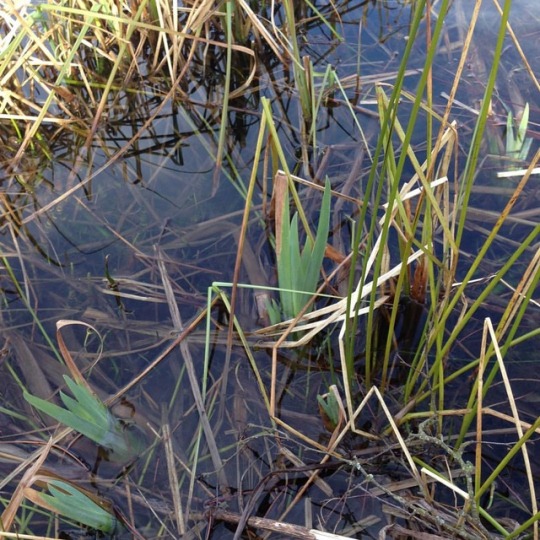
Iris pseudacorus 55° 49.190' N / -03° 15.312' W . . . #MyTreeGame #MyTreeEdinburgh #OutdoorAdventureGame #Botany https://www.instagram.com/drew.mcnaughton/p/BvH9jTEAgqJ/?utm_source=ig_tumblr_share&igshid=3cye7jju5e1b
0 notes